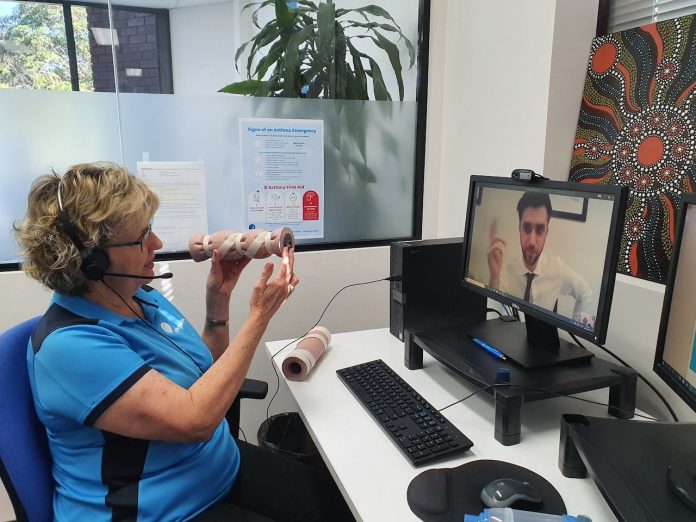There’s been a drop in the number of people going to WA hospital emergency departments with respiratory conditions, but Asthma WA is urging people to prepare for a likely winter surge.
From July 2019 to June 2020, there was an eight per cent decrease in asthma presentations and a 12 per cent decrease in chronic obstructive pulmonary disease (COPD) presentations.
Asthma WA CEO, Donna Rendell said they weren’t sure what was responsible for the decrease in numbers, but suggested good hand hygiene, social distancing and getting a flu shot were important factors in reducing avoidable presentations.
Ms Rendell said that Australia has the highest prevalence of asthma for adults aged 18–45 worldwide, so with winter upon us, Asthma WA is warning people with the respiratory condition to be prepared for the season ahead and not be fooled that asthma symptoms are on the decline.
Consultant in respiratory and sleep medicine, Dr John Blakey, backed up Ms Rendell’s comments and said there seemed to be two main contributors to the significant reduction in admissions.
“Firstly, a substantial proportion of asthma attacks are caused by viral infections. The increased awareness of physical distancing and hand hygiene due to Covid, coupled with the reduced travel to other areas, have helped greatly reduce the number of respiratory viral infections and influenza-like illnesses.
“Secondly, most people with asthma do not take their preventative treatment as regularly as intended. Concern about Covid-19 has encouraged more people to take their prescribed doses and has thus reduced their risk of having an asthma attack,” he said.
Ms Rendell said the decrease in people presenting at hospital may have also been due to fear of contracting Covid-19 or other viruses.
“But asthma is still a respiratory disease that needs to be taken seriously. If someone is having difficulty breathing, it’s critical that they commence asthma first aid and do not delay calling 000,” she said.
“As we head into winter, it’s essential respiratory conditions are well managed. People need to have an up-to-date asthma and/or COPD action plan and ensure they take their medication as prescribed.”
She said it was important for people with asthma or COPD to get both the flu vaccination and Covid-19 vaccination when it’s available.
Ms Rendell said both the prevalence of asthma and its impact are higher than many people realise.
“One in nine Australians have asthma, so we all know someone who is affected by the condition, and its impact is far reaching. It doesn’t always end up in emergency situations, but it can and often does have a significant effect on their quality of life including mental health, absenteeism and stressful hospital visits – usually due to inadequate management.
“And that’s where the free services Asthma WA offers can make a difference, by continuing to help reduce the number of hospitalisations and improve quality of life through education and empowerment of people to take control of their respiratory health.”
Asthma WA is available to answer questions about asthma on 9289 3600. COPD or patients should speak with their doctor for a review and to update their action plan.



































